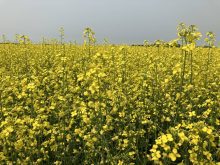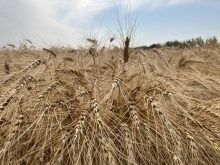Free trade negotiations with the European Union are all about opportunity for Prince Edward Island food processor Cavendish Farms.
The potato, french fry and appetizer company exports around the world but not into tariff-protected Europe, general manager Ron Clow told the House of Commons international trade committee last week.
“Currently, the tariff (on fried potato products) stands at 14.4 percent and we’re hopeful this tariff is immediately eliminated through these negotiations,” he said.
“Sweet potatoes and fried vegetable tariffs are even higher at 17.3 percent and we too hope that this tariff is repealed in a timely manner.”
Read Also

Supreme Court gives thumbs-up emoji case the thumbs down
Saskatchewan farmer wanted to appeal the court decision that a thumbs-up emoji served as a signature to a grain delivery contract.
Cavendish, North America’s fourth largest frozen potato producer, exports 88 percent of its product. Europe would be a natural market if it was accessible.
“Atlantic Canada in particular stands to gain from the successful conclusion of this negotiation due to the inexpensive cost of shipping by sea,” he said.
“It is as cheap for us to ship product to Europe out of Halifax than it is to truck it to a market like Chicago.”
Clow said a deal would help preserve the company’s 940 jobs and allow expansion of the workforce.
The message to MPs from Dairy Farmers of Canada was much different. It was a warning about potential losses.
Richard Doyle, executive director of Dairy Farmers of Canada, said a key demand by European negotiators is greater access to Canada’s cheese and milk products market.
He acknowledged that the federal government continues to insist that supply management protections will be defended.
“That being said, the Europeans continue to seek access to our dairy market and we urge the Canadian government to continue to remain firm, opposing any concessions in this area,” said Doyle.
He warned that any concessions to Europe, particularly to their demand that more European cheese be allowed into Canada, would undermine the Canadian defense of supply management in World Trade Organization talks.
He also said that while the Canadian dairy system is often portrayed as closed to imports, two-way trade with European Union countries tell a different story.
The value of dairy product exports to EU countries total $26 million annually while the value of imports is $217 million.
“Canada imports almost 10 times more dairy products from the EU than the EU imports from Canada,” he told MPs. “
For a market that is 15 times smaller, it is hard to say that Canada is a closed shop.”
Doyle said another danger is the EU insistence that geographic indicators be respected. This position would not allow Canadian cheese to use names that are connected to European locations where that type of cheese originated.
Doyle said European immigrants brought their cheese making skills with them and created brands based on the recipes from their native regions, such as parmesan and feta.
“We developed a whole industry based on that,” he said.
“To right that many years later and say, ‘oh, you cannot use those names anymore’ is totally unacceptable and will create a great deal of confusion.”
The geographic indicators debate also is a major issue for the Canadian wine industry.
















